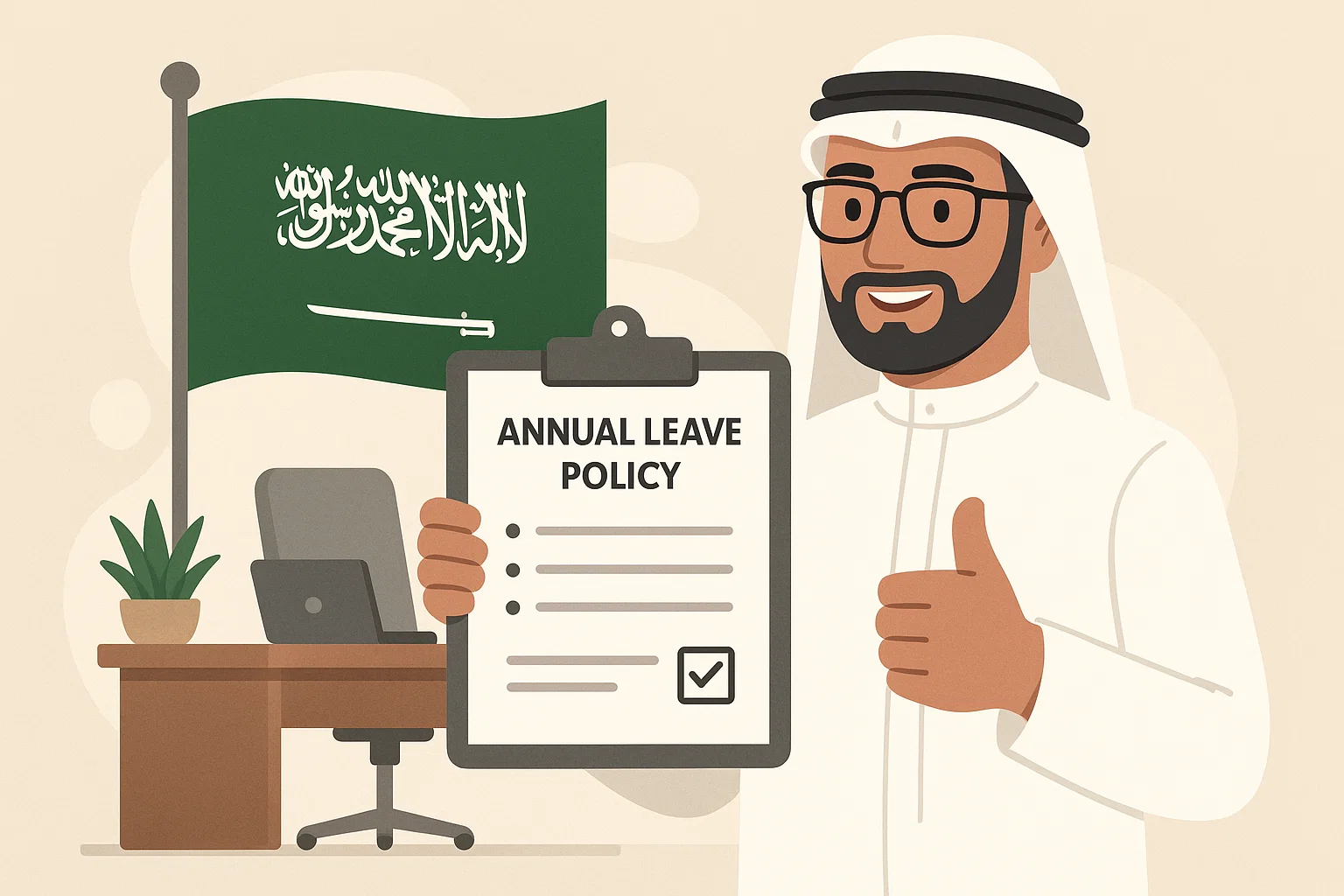Saudi Arabia Annual Leave Policy All Employees Should Know

What if you could plan your dream vacation without worrying about losing pay or job security? Navigating annual leave in Saudi Arabia can feel overwhelming, especially with complex labor laws and varying employer policies. Employees often face confusion about their entitlements, struggle with leave scheduling, or miss out on deserved time off due to unclear regulations. This detailed guide solves those pain points by breaking down Saudi Arabia’s annual leave policies in simple terms. From legal entitlements to practical tips for managing your leave, this article equips you with everything you need to know to make the most of your time off while staying compliant with local laws. Read on to discover how to balance work and personal life effortlessly.
Understanding Annual Leave Entitlements in Saudi Arabia
Saudi Arabia’s labor law, governed by Article 109, clearly outlines annual leave in Saudi Arabia for private-sector employees. After completing one year of service, employees are entitled to 21 days of paid annual leave. This increases to 30 days after five years with the same employer. These days are fully paid, including base salary and regular allowances.
The law ensures employees get adequate rest to maintain productivity. Leave accrues annually, and employers must pay vacation wages before the leave begins. Employees cannot waive their leave for cash during employment, ensuring they take time to recharge.
How Annual Leave Scheduling Works
Employers have the authority to schedule annual leave in Saudi Arabia based on business needs. They must notify employees at least 30 days in advance to ensure transparency. Employees can request specific dates, but approval depends on operational requirements.
Leave can be taken consecutively or split into two periods, offering flexibility. If unused, leave can be carried over to the next year with written employer consent. This helps employees plan longer breaks or save leave for future needs.
Public Holidays and Their Impact on Annual Leave
Saudi Arabia observes several public holidays, such as Eid al-Fitr, Eid al-Adha, Saudi National Day (September 23), and Founding Day (February 22). These are separate from annual leave in Saudi Arabia and are fully paid. If a holiday falls on a weekend, employers may offer a substitute day off or compensation.
Islamic holidays follow the lunar calendar, so dates vary yearly. Employees should check with employers or official announcements for accurate schedules. These holidays provide additional time off, complementing annual leave for better work-life balance.
Other Types of Leave in Saudi Arabia
Beyond annual leave in Saudi Arabia, employees are entitled to various other leaves:
-
Sick Leave:
Up to 120 days annually, with full pay for the first 30 days, one-third pay for the next 60 days, and unpaid for the remaining 30 days. A medical certificate is required. -
Maternity Leave:
Female employees get 10 weeks of paid leave, with half or full pay based on tenure. -
Paternity Leave:
Male employees receive three days of paid leave. -
Hajj Leave:
After two years of service, employees can take 10-15 days for Hajj, including Eid al-Adha. -
Bereavement and Marriage Leave:
Five days for bereavement and three days for marriage.
These leaves ensure employees can address personal and religious needs without financial strain.
Best Practices for Managing Your Annual Leave
To make the most of annual leave in Saudi Arabia, employees should plan strategically. Here are some tips:
-
Plan Early:
Submit leave requests well in advance to align with employer schedules. -
Understand Policies:
Review your employment contract for specific leave terms. -
Document Requests:
Keep records of leave applications for transparency. -
Communicate Clearly:
Discuss leave plans with your employer to avoid disruptions.
Carrying over unused leave requires written approval, so clarify this with your employer. If you leave your job, you’re entitled to compensation for unused leave based on your final wage.
Employer Responsibilities and Compliance
Employers must adhere to Saudi labor laws to ensure fair treatment. They are responsible for:
-
Providing at least 21 days of paid annual leave in Saudi Arabia (30 days after five years).
-
Paying vacation wages before leave starts.
-
Notifying employees of leave schedules 30 days in advance.
-
Allowing carryover of unused leave with consent.
Failure to comply can result in penalties, so businesses often use HR tools like TimeChart or Gloroots to streamline leave management and ensure compliance.
Common Challenges and How to Overcome Them
Employees sometimes face issues like denied leave requests or unclear policies. To address these:
-
Know Your Rights:
Familiarize yourself with Article 109 of the Saudi Labor Law. -
Negotiate Flexibly:
Propose alternative dates if your initial request is denied. -
Seek HR Support:
Consult HR for clarification on company-specific policies. -
Use Technology:
Leverage self-service HR portals to track leave balances.
Understanding your entitlements empowers you to advocate for your rights and plan effectively.
Why Annual Leave Matters for Work-Life Balance
Taking annual leave in Saudi Arabia is essential for mental and physical well-being. Regular breaks reduce burnout, boost productivity, and improve job satisfaction. Saudi Arabia’s labor laws prioritize employee welfare, ensuring time off for rest, family, and religious observances.
By planning leave wisely, employees can enjoy personal time without disrupting work. Employers benefit too, as rested employees are more engaged and efficient. A clear leave policy fosters trust and strengthens workplace relationships.
Tools and Resources for Leave Management
Modern HR tools simplify managing annual leave in Saudi Arabia. Platforms like SAP Payroll Control Center, TimeChart, or ZenHR help employees track leave balances and submit requests. Employers use these tools to ensure compliance and streamline payroll.
For accurate holiday schedules, check official government announcements or employer portals. Staying informed helps you plan leave around public holidays and personal commitments effectively.
Final Thoughts on Annual Leave in Saudi Arabia
Mastering annual leave in Saudi Arabia empowers employees to balance work and personal life while staying compliant with labor laws. By understanding entitlements, planning strategically, and communicating with employers, you can maximize your time off. Whether it’s a family vacation, religious observance, or personal recharge, Saudi Arabia’s leave policies support your well-being. Stay proactive, use HR tools, and know your rights to make the most of your annual leave.




